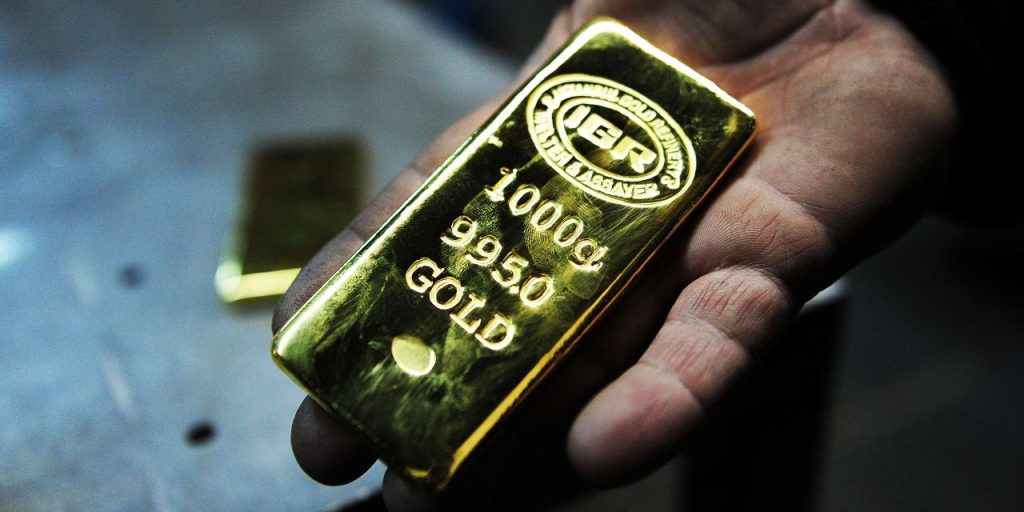Gold prices settled Tuesday at their highest in three weeks, as data showing declines in U.S. consumer confidence and job openings weakened both the dollar and Treasury yields.
The move for the precious metal comes ahead of U.S. inflation and labor-market numbers due later this week.
Price action
-
Gold futures for December delivery
GC00,
-0.05% GCZ23,
-0.05%
gained $18.30, or 0.9%, to settle at $1,965.10 per ounce on Comex. That was the highest finish for a most-active contract since Aug. 7, FactSet data show. -
Silver futures for September delivery
SI00,
-0.07% SIU23,
-0.11%
added 54 cents, or 2.2%, at $24.79 per ounce. -
October platinum
PL00,
-0.58% PLV23,
-0.58%
gained $13.90, or 1.4%, to $986.10 per ounce, while Palladium for December delivery
PA00,
-0.56% PAZ23,
-0.56%
fell by $4.70, or 0.4%, to $1,257.20 per ounce. -
Copper for December delivery
HG00,
-0.04% HGZ23,
-0.04%
gained 5 cents, or 1.2%, to $3.84 per pound.
Market drivers
Gold prices have benefited over the past week as Treasury yields have retreated from their highest levels in more than 15 years.
U.S. economic data are the “focus” as those numbers will move the dollar index, and any strength in the dollar index is likely to push gold lower, and vice versa, said Naeem Aslam, chief investment officer at Zaye Capital Markets.
On Tuesday, the Conference Board said the index of U.S. consumer confidence dipped to 106.1 in August from a revised 114 in the prior month. Separately, the Labor Department said U.S. job openings fell to a 28-month low of 8.8 million in July.
Against that backdrop, the 10-year note yield
BX:TMUBMUSD10Y
was down at 4.122% on Tuesday. It had touched its highest level since 2007 last week, according to FactSet data, when it traded just shy of 4.37%.
Meanwhile, the U.S. dollar moved below its highest levels since March. The ICE U.S. Dollar Index
DXY
was trading at 103.516 in Tuesday dealings.
However, for traders, what matters most is the Federal Reserve’s monetary policy, Aslam said in emailed commentary.
“A tighter job market means that inflation is likely to remain elevated for an extended period of time, which means that there is a threat of further action from the Fed,” he said. “This is keeping the lid on the shining metal’s price.”
Commodity analysts attributed the yellow metal’s recent strength to last week’s commentary from Fed Chairman Jerome Powell, who sounded non-committal about the prospect of more interest-rate raises. Given the lack of clarity about where interest rates are headed, any short-term moves in the yellow metal’s price could be quickly reversed once investors have a better idea of what’s to come, a team at Commerzbank said.
“Against this backdrop, any major fluctuations in the gold price, in either direction, seem unlikely and indeed unjustified for the time being,” the team said.
Others are more optimistic. On Monday, a strategist at Morgan Stanley said in a note to clients that she’s looking for opportunities to buy the yellow metal.
Later in the week, investors will receive the next batch of significant U.S. economic data that could influence the price of the yellow metal. On Thursday, investors will receive the July personal consumption expenditure index, the Fed’s preferred inflation gauge, followed by the U.S. Labor Department’s August employment report on Friday.
Read the full article here















